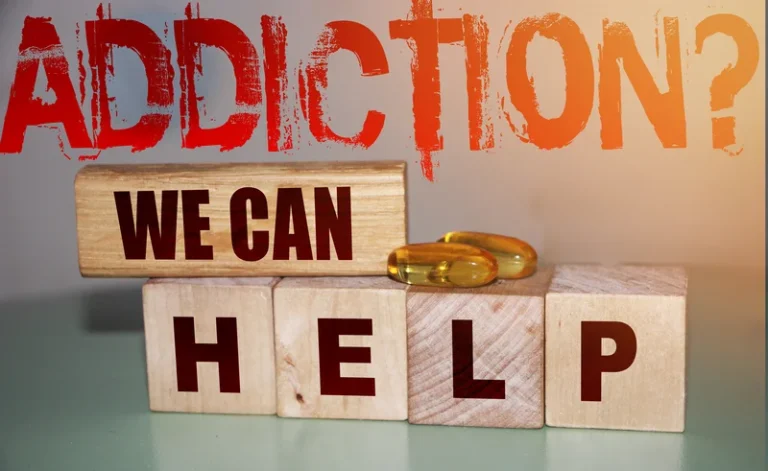
And what’s more, she found she genuinely desired her husband more frequently in between date nights. The addiction recovery and rehabilitation experts at Positive Sobriety Institute are standing by 24/7 to answer your questions about our addiction treatment and rehabilitation program. Alcohol is a psychoactive substance that can cause changes in mood, awareness, thoughts, and behavior. These changes can lead to various issues and can make you act in ways that can drive a wedge drug addiction treatment between you and the people around you.

Are you covered for treatment? Find out now.
In the US, alcohol is a factor in 40% of reported domestic violence cases. Research shows that large quantities of alcohol in the system can increase a sense of personal power and domination over others, which might lead to aggression. Alcohol can also make it hard to understand what others are saying or doing, making misunderstandings more likely and aggressive reactions more common. Marriages and long-term committed partnerships are at higher risk of breaking up when alcohol is a problem in the relationship—especially when one partner has an alcohol misuse problem and the other doesn’t. Alcohol misuse can affect relationships with partners, family members, co-workers, and others.
Alcohol Withdrawal Symptoms: Detox, Timeline & Treatment
Drinking problems can adversely change marital and family functioning, but they may also increase due to family problems. If you’ve reached the point where it’s hard to communicate with your partner, consider reaching out to a therapist who specializes in couples and family counseling for help getting back on track. Given that alcohol can contribute to all these issues, it’s likely that alcohol use has the potential to lead to separation issues in some couples. A 2013 study found that of the 52 people who participated, over 34 of them (that’s more than 60%) noted that substance use was a factor for separation.
You’re Spending Less Time Together
- This disconnect most likely contributed to sex falling flat outside of their monthly rendezvous.
- Alcohol has the potential to wreak havoc on relationships, causing significant damage and turmoil.
- The additional responsibilities can contribute to increased stress, leading to behavioral, physical, and mental health problems.
- To treat and overcome alcoholism, it’s essential to address not only your alcohol use but also the alcohol use of your partner.
- It has been found that the severity of periodontitis is proportional to the frequency of alcohol consumption, as well as causing an increase in plaque index.
- If you think alcohol may be affecting your relationships, it might be a good idea to consider speaking with a healthcare or mental health professional.
- Alcohol can erode trust, increase conflict, create emotional distance, and lead to financial strain, all of which weaken the bond between partners.
Or do you feel like you can’t seem to have a single good day anymore, no how does alcohol affect relationships matter how hard you try? If so, it may be time to consider how alcohol is impacting your relationship. By taking a closer look, you might find that you or your partner’s drinking habits are at the core of many of your disagreements.

Important note on domestic abuse
They may experience emotional and behavioral difficulties, such as anxiety, depression, and aggression. Alcohol consumption can significantly undermine the foundations of romantic relationships, manifesting in a range of destructive behaviors and consequences. The nexus between alcohol use and intimate partner violence (IPV) is particularly concerning, as studies reveal that alcohol can escalate aggression and lead to physical, emotional, and psychological harm. This not only affects the immediate safety and well-being of partners but also has long-term health implications, including mental health disorders like depression and anxiety. Studies have shown that alcohol use disorder (AUD) can severely affect an individual’s personality, leading to changes that may make them unrecognizable from their former selves. These alterations can manifest as mood swings, aggression, and a decline in mental health, ultimately straining relationships and causing issues such as mistrust and poor communication.

How Alcoholism Affects The Family
According to the study, women who had partners that drank more experienced more intimacy but more conflict in their relationships, while men who drank at higher levels had more distrust of their partners. But this study was limited to couples in sub-Saharan Africa, and more research is needed. Alcohol has the potential to change a person’s personality in huge ways. When paired with problems that can also arise from excessive alcohol use, drinking can sometimes negatively affect our relationships with the people closest to us. Yes, alcohol abuse can exacerbate violent tendencies or lower inhibitions, leading to abusive behavior. It can also create a toxic environment where emotional and physical abuse becomes more likely.
Alcohol’s Effects on Romantic Relationships: How to Rebuild and Heal
Orlando Recovery Center specializes in compassionate, evidence-based care tailored to your needs. Alcohol use disorder (AUD) is a medical condition characterized by an impaired ability to stop or control alcohol use despite adverse social, occupational, or health consequences. The National Institute on Alcohol Abuse and Alcoholism (NIAAA) outlines the criteria for AUD based on the Diagnostic and Statistical Manual of Mental Disorders, Fifth Edition (DSM-5). In 2021, 28.6 million adults aged 18 and older were estimated to have AUD, highlighting its prevalence.
Recovery is a journey that often involves both professional help and a strong support network. Each path plays a crucial role in healing and building healthy relationships. Children might develop depression or anxiety and could mimic the destructive behavior in the future.
Creating an accepting environment at your practice Weekly Wisdom
Ria Health offers several FDA-approved medications for alcohol use disorder. When combined with counseling, this approach is proven highly effective. Excessive drinking has numerous impacts on your body and mind, ranging from mild to severe.
Alcohol consumption and depression have a complex, bidirectional relationship that can significantly impact interpersonal relationships. Research suggests that low to moderate alcohol consumption in early to middle adulthood may be protective against the development of depression at midlife, in contrast to consistent abstinence. However, this does not imply that alcohol is a remedy for depression, as excessive drinking can lead to or exacerbate depression symptoms. The relationship between alcohol consumption and aggression is complex and multifaceted, impacting interpersonal relationships significantly.